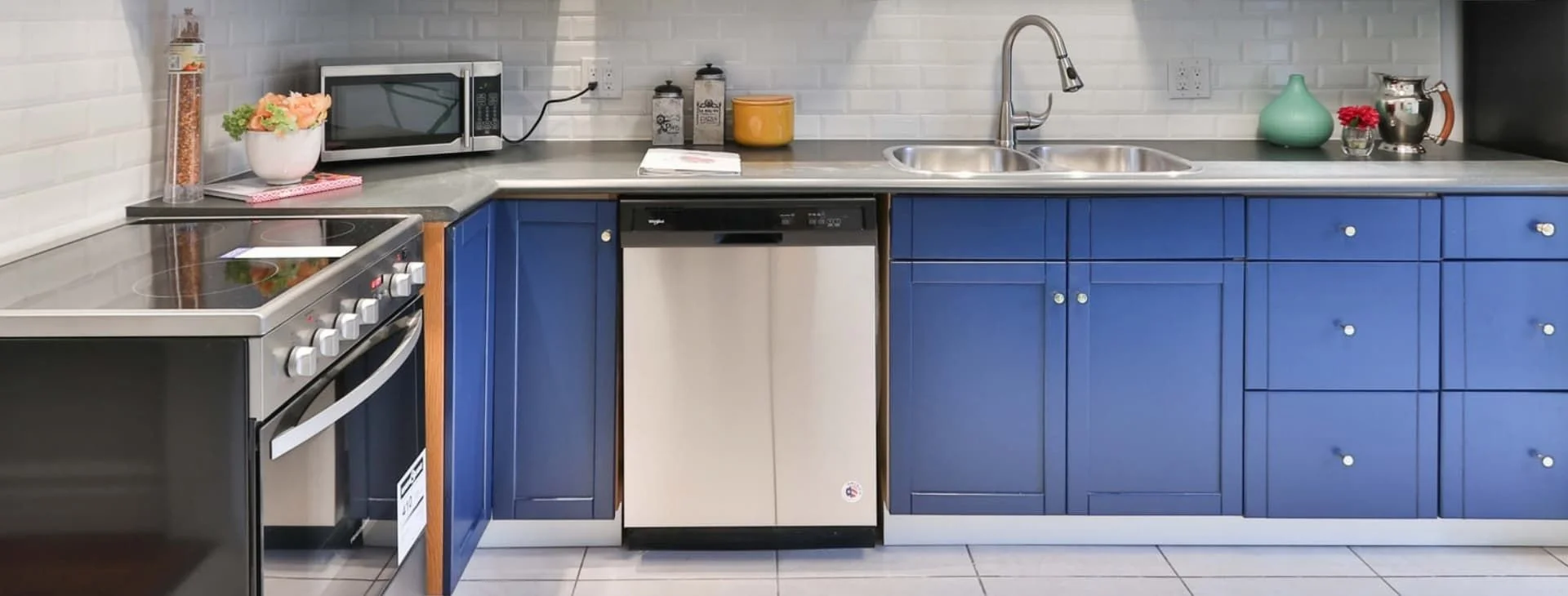
Some wine enthusiasts or collectors may tell you to avoid storing your wine in the kitchen - but do they have a point? After all, they’re dark and convenient spaces to place them, and not everybody has a wine cellar they can store their collection in. But is it okay to store your wine in your kitchen cupboards? If not, where’s the best place to store your wine? Keep reading to find out whether you can store your wine collection in your kitchen cupboards, or if there are better ways to store your wine.
Kitchen cupboards are dark and roomy, you may think that they’re the ideal spot to store your wine collection. Wine is best stored in dark spaces, as the UV rays found in sunlight can negatively impact your wine. In fact, sunlight is one of the most important things that you need to consider when storing your wine, even if you’re only storing it for a couple of days.
UV light doesn’t just have a negative impact on the flavours of the wine - it can also affect the aromas and appearance. In the wine world, this is known as light strike. Light strike is when UV light affects the body of the wine and causes chemical reactions that speed up the ageing process, leaving your wine tasting sour, bitter, and generally unpleasant.
More specifically, UV rays chemically affect the riboflavin and pantothenic acid that naturally occurs in wine after just an hour or two of exposure - reacting with the amino acids in the wine. This reaction produces sulphur, which is what causes the unpleasant flavours and aromas. Even low levels of sulphur can affect the aromas and flavours, so it’s always best to store your wine in dark environments away from any sunlight or UV light.
If you’re a wine collector or wine investor, this is the last thing you want to occur as it can decrease the value of the wine instantly. If you’re a collector or you simply take wine storage seriously, you may want to take extra precautions instead of storing your collection in a cupboard.
Although your wine may be protected from sunlight in kitchen cupboards, your wine will most likely be stored at the wrong temperature and in the wrong humidity levels. The temperature at which you store your wine, especially when ageing your wine, can also have negative effects on the wine. Wine is best stored at temperatures in the range of 11°C and 14°C when storing in the long term.
Storing your wine at temperatures above this range may speed up the ageing process within the body of the wine, causing your wine to develop unpleasant aromas and flavours. If you store your wine at too high a temperature, then it may begin to cook. When your wine is heated, it could taste sour and bitter which can overpower the wine’s natural flavours. If you store your wine in kitchen cupboards, be sure to avoid placing it in a cupboard near your oven or other appliances that generate heat that could heat up the wine.
However, it’s not just overheating the wine that you need to worry about. If your wine gets too cool, then it could potentially freeze and lose the nuanced and complex flavours. The cork could also freeze and move out of place, exposing your wine to oxygen and causing further irreversible damage.
Kitchen cupboards might not provide the right humidity levels for your wine either. Wine is best stored at humidity levels between 55% and 75%, but it can be difficult to ensure this if you store your wine in your kitchen cupboards. Your wine needs some humidity in order to ensure the cork remains moist and stays in place. However, too much humidity can cause the cork to become too moist, which can also cause it to slip out of place.
Too much humidity can also cause moisture droplets to form around the bottle, which can cause mould to grow. It can also damage the labels and the bottle, which can be devastating if you’re a wine collector or wine investor. If you don’t consider humidity, then oxygen could enter the wine and quickly destroy it, leaving it tasting unfresh and bitter. If you’re storing sparkling wine, the wine will flatten in a matter of hours.
The bottom line is that your wine should be okay in your kitchen cupboards in the short term if you’re not planning on ageing your wine. Your kitchen cupboards can ensure your wine is protected from sunlight, but can’t provide the optimal storage conditions for your wine. However, if you’re a wine collector or connoisseur, then you may want to consider a better, more long-term storage solution for your wine - which brings us to our next section.
Now you know why storing your wine in kitchen cupboards may not be ideal for your wine collection, it’s time to find out some of the better ways to store your wine.
Wine coolers can be a great place to store your wine collection, no matter how big or small. First of all, wine coolers can store your wine at the ideal temperature so ensure it ages perfectly. You can find wine coolers with dual temperature zones that allow you to store your wine for serving, and also store wine in the long term at a different temperature at the same time.
In a dual or multi-zone wine cooler, you can also store your reds and whites at different temperatures for optimal storage. Wine coolers can also regulate the humidity levels and protect your wine from sunlight and are perfect for both long term and short term wine storage.
Wine cellars are also great for wine collectors and investors alike, providing the perfect conditions for wine to thrive. Wine cellars are perfect for larger collections, and feature a climate control system to ensure your wine ages perfectly and remains fresh for longer.